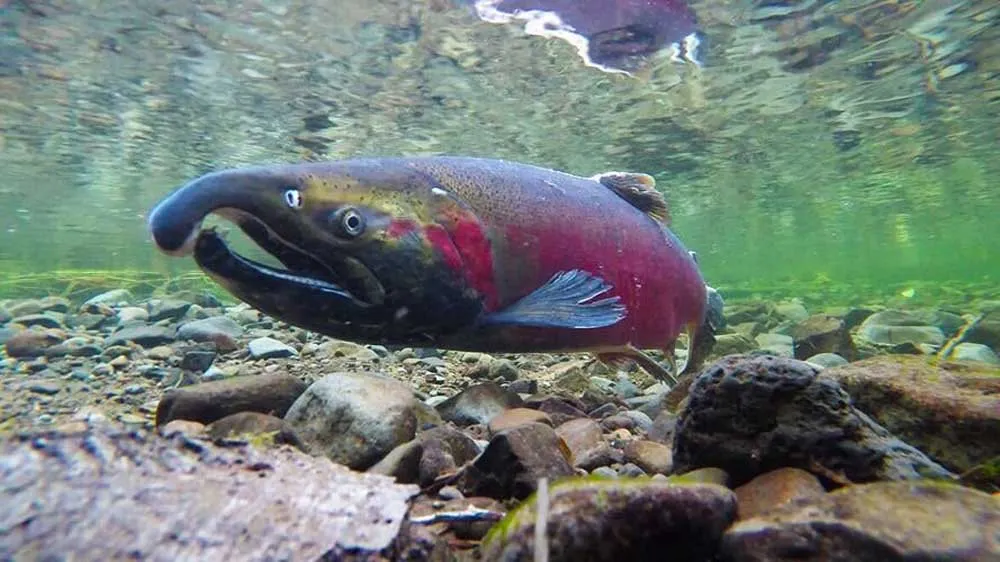SALEM, Ore. – Oregon, Washington, and four Lower Columbia River tribes are once again taking the federal government to court, accusing it of operating hydroelectric dams in ways that threaten already fragile salmon populations.
The renewed litigation, announced Thursday, follows the Trump administration’s withdrawal from a landmark agreement forged just two years ago between Northwest states, tribes, environmental groups, and federal agencies. That deal, known as the Columbia Basin Restoration Initiative, paused decades of courtroom battles while stakeholders worked toward a long-term plan to protect endangered salmon runs and modernize hydropower operations.
With the administration’s abrupt reversal, the truce has collapsed.
Also Read
“Extinction is Not an Option”
Governor Tina Kotek said Oregon has a responsibility to defend one of the Pacific Northwest’s most iconic species.
“Extinction of iconic Columbia River salmon runs is not an option,” Kotek said in a statement. “We can have both healthy and abundant fish runs and power to meet our growing energy needs. Working with the sovereign tribes and the state of Washington, I have directed staff and agencies to protect existing salmon runs and advocate for sustainable salmon population restoration.”
The lawsuit seeks injunctive relief that would require the federal government to manage hydropower systems to better support salmon migration downstream.
A Fragile Agreement Collapses
In 2023, Oregon, Washington, and the Yakama Nation, Umatilla Tribes, Warm Springs Tribes, and Nez Perce Tribe reached an agreement with federal officials to end litigation and pursue collaborative solutions. The deal was hailed as historic, requiring short-term protections for salmon and committing federal agencies to planning that honored treaty rights and supported tribal energy development.
But earlier this year, the Trump administration rescinded its commitments. The move left tribes, states, and conservation groups with little choice but to return to court.
Conservation Groups Back the Move
Environmental advocates applauded the renewed legal action. Tanya Riordan, policy and advocacy director with the Save Our Wild Salmon Coalition, said the states and tribes are showing necessary leadership.
“The resilient Columbia Basin agreement was an important and historic first step toward implementing the necessary measures to protect and restore endangered salmon in the Columbia and Snake rivers,” Riordan said. “In the absence of that federal agreement, because the Trump administration rescinded it, it’s important to ensure urgent actions are taken to protect salmon that are on the brink of extinction.”
She added that plaintiffs are left with no option but to request injunctive relief to “stop and slow the … extinction.”
Salmon at the Brink
Once numbering between 10 and 16 million annually, Columbia River Basin salmon and steelhead runs have plummeted. Today, more than a third of those populations are extinct, and many of the remaining runs are considered threatened or endangered.
Hydroelectric dams, which provide the region with clean and affordable energy, have long been identified as a major obstacle to salmon survival. The massive concrete structures block migration routes, alter river flows, and heat water to levels deadly for fish. While billions of dollars have been spent on fish ladders, hatcheries, and habitat restoration, populations remain dangerously low.
Balancing Power and Ecology
The lawsuit underscores the difficult balance between maintaining a reliable power grid and honoring ecological and cultural obligations. Hydropower from the Columbia and Snake River dams supplies a significant share of the Northwest’s electricity, but tribes and environmental groups argue that the system has been managed at the expense of treaty rights and species survival.
The Confederated Tribes and Bands of the Yakama Nation, the Confederated Tribes of the Umatilla Indian Reservation, the Confederated Tribes of Warm Springs, and the Nez Perce Tribe have repeatedly emphasized that salmon are not only a food source but also central to their culture, spirituality, and economy.
What Comes Next
With litigation back on the table, federal agencies may once again face judicial orders forcing them to change dam operations to protect fish. Previous court rulings have required actions such as increased water spills over dams to help young salmon migrate downstream.
Advocates say court oversight is crucial to prevent further losses. “Without federal accountability, these salmon are running out of time,” Riordan said.
For now, Oregon and its partners are preparing for another round of legal battles in a decades-long fight that blends energy policy, tribal sovereignty, and environmental survival.












